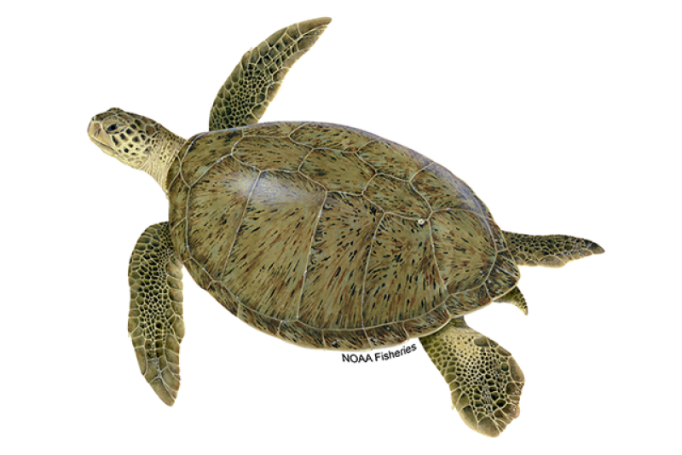Green Turtles

Disclaimer: Copyright infringement not intended.
Context
- According to researchers, rising global temperatures could lead to an increase in the nesting range of Green Turtles in the Mediterranean Sea.
Study published in Scientific Reports
- Progressively worse climate scenarios were associated with greater increases in the nesting range in the Mediterranean.
- Under the worst-case climate scenario modelled, the nesting range increased by 62.4% points, and included the North African coastline to Algeria, much of Italy and Greece, and the south Adriatic Sea.
- However, the authors warn that this increase in green turtle nesting range in the heavily populated central and western Mediterranean would bring them into increased contact with humans and urbanised beaches, which could negatively affect nesting success.
About Green Sea Turtle
- The green sea turtle (Chelonia mydas), also known as the green turtle, black (sea) turtle or Pacific green turtle, is a species of large sea turtle of the family Cheloniidae.
- It is the only species in the genus Chelonia.
- Its range extends throughout tropical and subtropical seas around the world, with two distinct populations in the Atlantic and Pacific Oceans, but it is also found in the Indian Ocean.
- The common name refers to the usually green fat found beneath its carapace, not to the color of its carapace, which is olive to black.
- Green sea turtles migrate long distances between feeding grounds and hatching beaches.
Conservation
- mydas is listed as endangered by the IUCN and CITES and is protected from exploitation in most countries.
- It is illegal to collect, harm, or kill them. In addition, many countries have laws and ordinances to protect nesting areas.
Threats
- In some countries, turtles and their eggs are still hunted for food.
- Pollution indirectly harms turtles at both population and individual scales.
- Many turtles die after being caught in fishing nets.
- In addition, real estate development often causes habitat loss by eliminating nesting beaches.
|
PRACTICE QUESTION Q. Consider the following statements: 1. Green Sea Turtle is not found in the Indian Ocean. 2. It is listed as Critically endangered by the IUCN and CITES. 3. Rising global temperatures could lead to an increase in the nesting range of Green Turtles Which of the above statements is/are incorrect? A) 1 and 2 only B) 2 only C) 3 only D) All Answer: A) 1 and 2 only |




1.png)
